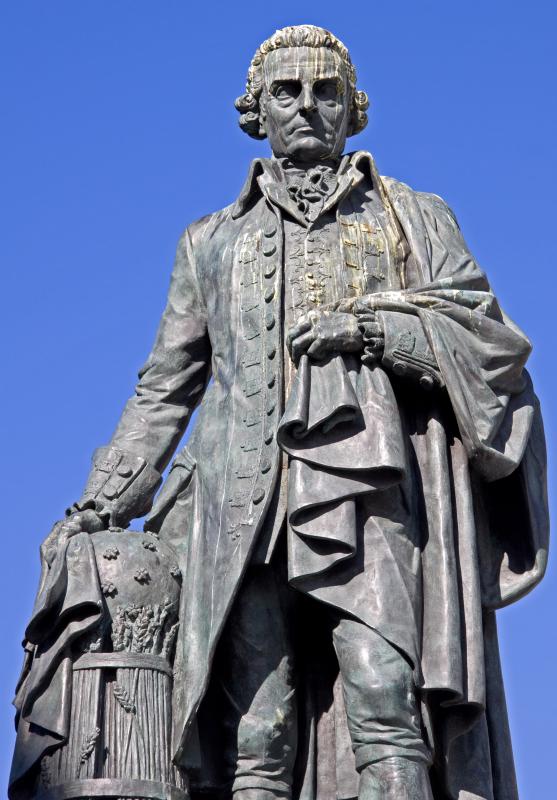At WiseGEEK, we're committed to delivering accurate, trustworthy information. Our expert-authored content is rigorously fact-checked and sourced from credible authorities. Discover how we uphold the highest standards in providing you with reliable knowledge.
What Is Bank Deregulation?
Bank deregulation typically refers to the elimination or at least simplification of various laws that apply to banks. It normally happens at the national level and is often intended to allow individual actors, be they people, corporations, or banks themselves, to be more self-regulating and make more personalized choices about things like interest rates and acceptable payouts. The practice is perhaps most heartily supported by free-market advocates, who often push for a society where individual choice rather than government mandate informs action. These proponents stress minimal, if any, interference by the government in the private sector. Banking is often a high-stakes environment, particularly when considering things like national treasuries and major capital from industry. Success of the banking industry is often seen as vital to a country or region’s economic success more generally, and as such it’s often a sector government regulators want to control, even if just tangentially. Even in all or mostly deregulated situations, though, it’s important to realize that some laws usually still apply, particularly those related to fraud and other criminal practices. It’s normally just those regulating more discretionary policies that are lifted.
Understanding Agency Regulation Generally

Most governments regulate many if not most of the areas of commerce within their societies, and these regulations normally come in the form of laws. Laws set rules and boundaries, and carve out broad parameters for actions that either are or are not permissible. Banking and money management if often a highly regulated area for a number of reasons, but the attached risks certainly top the list.

In most cases the overarching reasons for bank regulation are well founded and well intentioned. Depending on the circumstances, however, they’re often criticized as being overly restrictive and hindering the possibility for innovation, among other things. The deregulation movement was largely born out of a desire for a less restricted marketplace. How deregulation happens, its breadth, and its limits can vary tremendously from place to place. A lot depends on the overarching legal structure of the society generally, as well as the size and scope of the banking industry more specifically.
Relationship to Free-Market Economics
Bank deregulation is closely associated with free-market economics. The primary concept of free-market economics is that limited governmental involvement in the market will allow the market to settle into an optimal state. Similarly, deregulation advocates believe that regulatory control stifles competition in the banking sector. According to this idea, competition will be economically beneficial to individual banks, and consumer generally. In theory, banks will be forced to offer the best deals to prospective customers, and manage their affairs efficiently and effectively, in order to remain in business.
The free-market concept is highly associated with one of its greatest advocates in history — Scottish economist Adam Smith. One of his most famous terms is "the invisible hand," which refers to the concept that no regulation actually has a hand, albeit invisible, in directing the market to an optimal state.
Normal Fluctuations in Policy
The success of deregulation often varies, too, and can fluctuate depending on other external forces. For example, bank regulation in the United States leading up to the Great Depression was minimal. After the economic collapse of 1929, however, the government increased regulation and even created an independent agency — the Federal Deposit Insurance Corporation (FDIC) — to oversee bank processes. The economic collapse was partly seen to have resulted from an artificially inflated market caused by unregulated banks using underwritten stocks.
Beginning in the 1980s, there was a general movement away from bank deregulation. Largely attributed to the Regan administration's economic focus on free-market principles, this shift towards deregulation culminated with the Gramm-Leach-Bliley Act of 1999. The Gramm-Leach-Bliley Act (GBLA), also known as the Financial Services Modernization Act of 1999, allowed banks to have more freedom in their economic practices, and led to the elimination of the traditional separation between bank insurance and bank investments. Some analysts trace the economic downturn of 2008 and the bankruptcy of various American banks to the GBLA.
Ongoing Debate
All around the world, debates over bank deregulation are ongoing. Those experts who believe in the infallibility of the market suggest that any regulation eliminates competitiveness, which in turn limits economic growth. Those economists and financial experts that support bank regulation continue to reference the historical economic collapses that resulted from an unregulated free market and the infinite greed of the business sector.
AS FEATURED ON:
AS FEATURED ON:












Discussion Comments
General public knows America is in trouble. Our kids are worse off. We need a list no longer than 10 items that grossly suggest where we went wrong. Then let each of us reach a bottom line decision. Bank deregulation-yes or no; war- yes of no. really we don't need all the ifs, ands and buts. Just a simple question in each of our minds. Is it good for America?
Post your comments